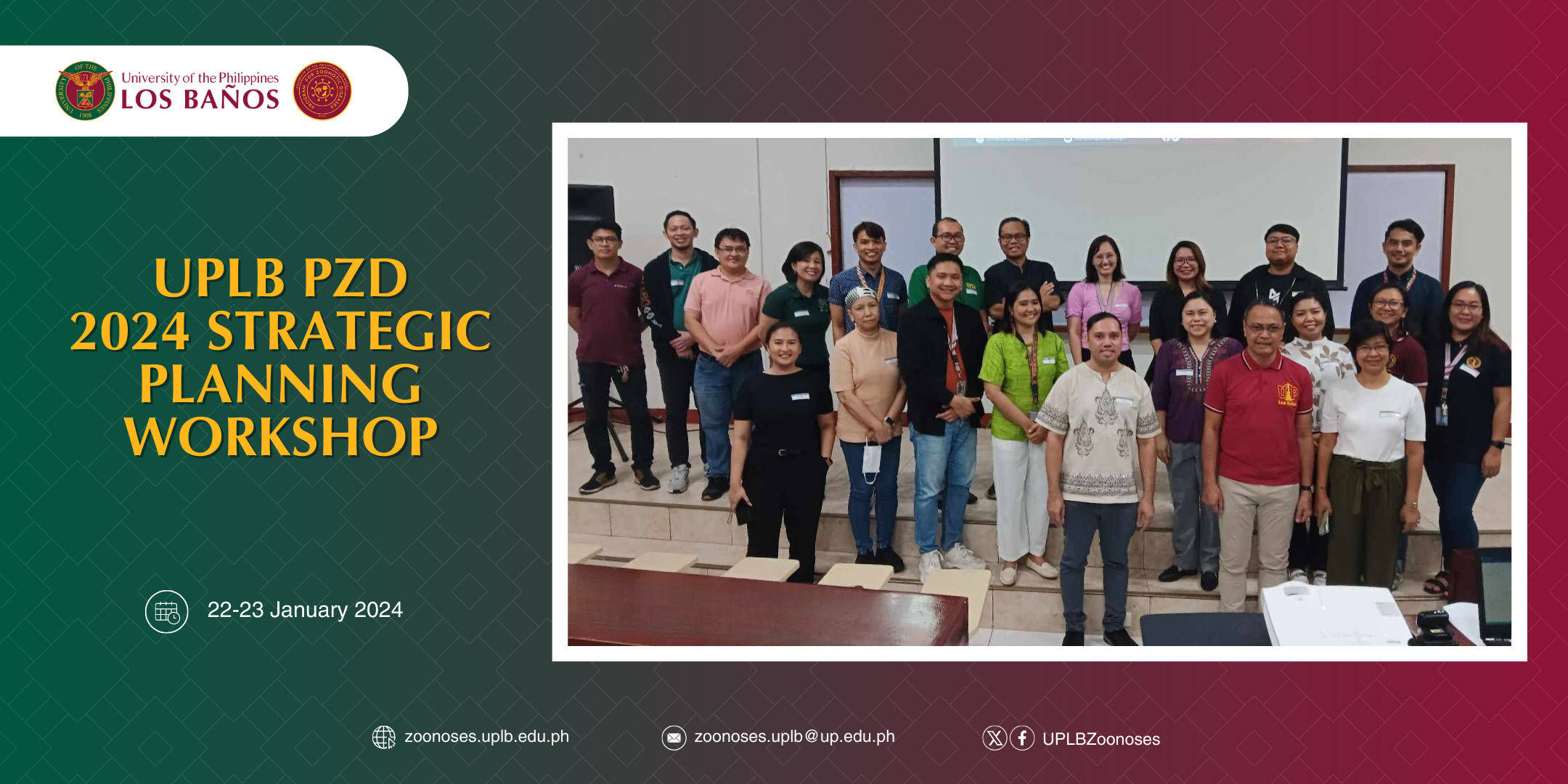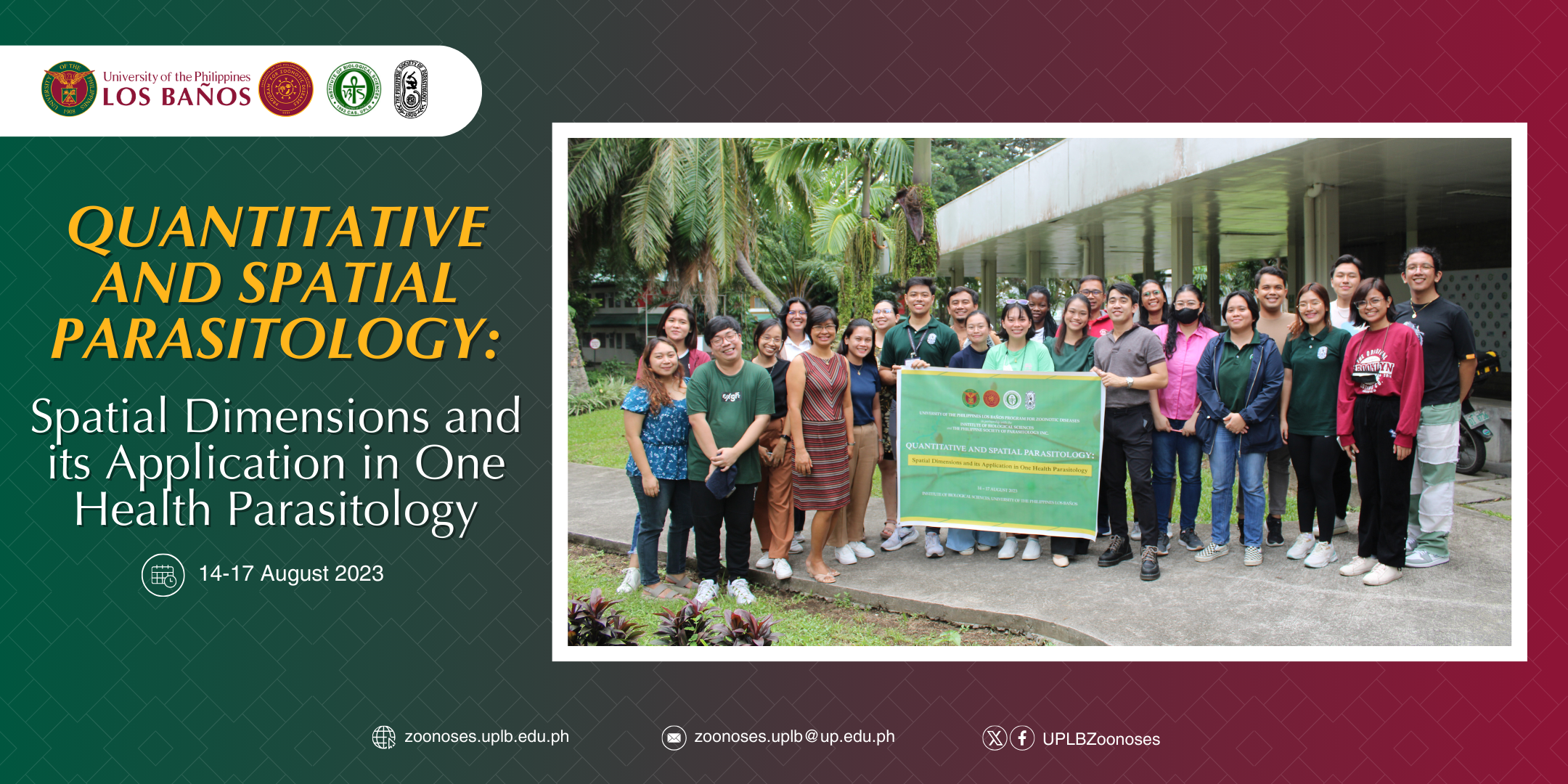UPLB PZD partners with PSP, UPLB IBS for 2023 Zoonoses and Wildlife Webinar
On 15 December 2023, a webinar titled “ZOONOSES AND WILDLIFE: One Health, Spillover, and Human Activity” was conducted via Zoom by the Philippine Society of Parasitology (PSP) in collaboration with the UPLB Program for Zoonotic Diseases (PZD) and the UPLB Institute of Biological Sciences (IBS).
Dr. Vachel Gay Paller, Project Leader for UPLB PZD’s Parasite and Vector Biology and Control Division officially opened the webinar by highlighting the connection between human activities, spillover, and One Health. Dr. Paller is also a Professor of Parasite Ecology and Public Health at UPLB and the current PSP President.
Assoc. Prof. Phillip Alviola, UPLB PZD member and UPLB IBS Associate Professor, presented the zoonotic spillovers of high-consequence pathogens at the nexus of the bat-human interface. He explained the concept of high-consequence pathogens and presented the WHO virus list with pandemic potential, four of which have bats as their animal source. His presentation then delved into the pathways to zoonotic spillover and gave examples of bat-borne spillovers, namely SaRS-COV-2, Marburg Virus, Reston Ebola Virus, and Henipavirus. He also showed a map of the spillover hotspots in Asia, which revealed that China and Indochina are hotspots, and Sumatra has a high-risk score.
Assoc. Prof. Alviola also discussed their study on documenting bat-borne viruses in the Philippines. They conducted biosurveillance on the contribution of Pteropodidae fruit bats to viral spillover in the Philippines and used GPS telemetry studies for bats to track the movements of flying foxes. The study revealed that bats can travel long distances and have actual contact with humans.
Dr. Balbir Singh, faculty professor of Medicine and Health Science in University Malaysia Sarawak, presented “Zoonotic Malaria in Southeast Asia: Man, Monkey, Mosquito and Malaria.” He introduced the Plasmodium species and malaria before discussing their research on zoonotic malaria. Dr. Singh explained that microscopy analysis often misdiagnoses cases as P. malariae instead of P. knowlesi. He also presented the history of P. knowlesi as a malaria parasite.
Dr. Singh stated that zoonotic infections are extremely rare, but pointed out that “zoonotic cases are the tip of the iceberg” He emphasized that zoonotic malaria is widely distributed in Southeast Asia, but its transmission and incidence are not fully understood due to the limitations of microscopy-based detection. He also presented the non-human primate hosts of the parasite and the challenges in malaria control, elimination, and eradication. Dr. Singh emphasized that spillover has been happening for a long time and can lead to death if not detected and treated early.
In his closing remarks, PSP Vice President Dr. Windell Rivera thanked the participants, speakers, and organizers and gave a summary of the presentations. He also announced the future activities of PSP.
Around 180 participants attended the webinar, including PSP members, professionals, enthusiasts, and researchers. For those who missed it, a recap of the webinar is available on PSP’s Official Facebook Page. The master of the ceremony was Mr. Allen Jethro Alonte, a member of the UPLB PZD, Instructor at the UPLB IBS, and PSP’s current PRO.




